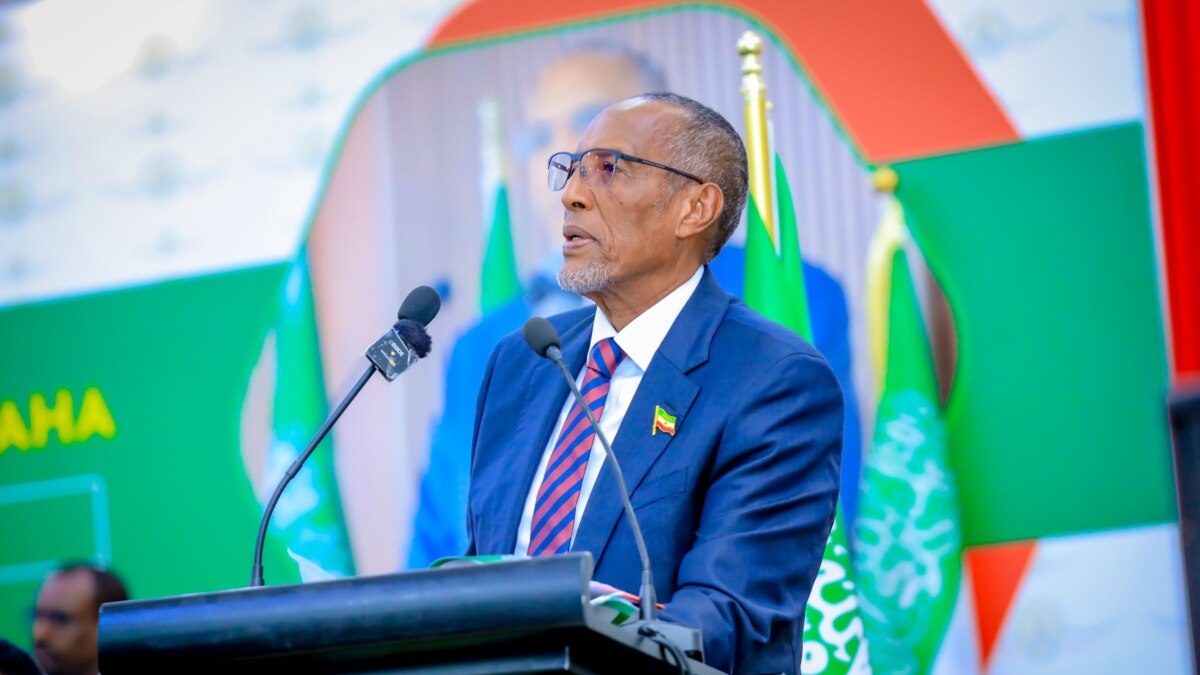

Abdi Jama
In the dynamic political landscape of Somaliland, there is a resounding call for change as citizens grow increasingly disillusioned with the 13-year reign of the Kulmiye party. Over the past seven years, a leadership style reminiscent of a junta has prevailed, with President Muse Bihi and Interior Minister Mr. Kahin at the forefront. Under their adminstration, the country has grappled with various governance challenges, including issues of transparency, accountability, and inclusivity. A sense of stagnation and growing public dissatisfaction have characterized this period, as these two divisive individuals have eclipsed the once-promising vision of the Kulmiye party. Unemployment rates have skyrocketed, social divisions have deepened, and the economy teeters on the edge of crisis. With harassment, intimidation, violations of human rights and free speech, widespread nepotism, clan-based conflict, diplomatic isolation, and the real possibility of civil unrest, the formerly tranquil and stable country is currently experiencing a worrisome decline into insecurity.
The upcoming election in Somaliland is a crucial moment, offering a glimpse of hope for democratic renewal. However, the current administration’s refusal to acknowledge the potential for electoral change indicates a troubling denial of reality. The Kulmiye party’s demand that the opposition, Wadani, concede to the election results beforehand is a blatant attempt to undermine the democratic process. This request, which is widely perceived as a desperate effort to cling to power, has only served to intensify the people’s concerns.
The fundamental issue is the people’s intense desire for a new direction. The majority of Somaliland’s population perceives the administration’s appeal as a disconnected attempt that does not address the urgent needs of the nation. Most people think that this year’s presidential election is not just another political competition but rather a crucial moment in the history of the country where leadership that has deviated greatly from the ideals of popular will and good governance will be removed.
Amidst the clamor for change, the Wadani party, led by the experienced diplomat Abdirahman Irro has emerged as a symbol of hope for many. Abdirahman Irro’s impeccable reputation for integrity and his ambitious vision for the future of Somaliland have earned him widespread support, making him the key to the transformative change that the country desperately needs. Under his leadership, there is a collective belief that Somaliland can navigate these turbulent times and embark on a path of genuine democratic renewal, national healing, and prosperity.
As Somaliland stands on the brink of change, the demand for regime change goes beyond mere political rhetoric. It is a sincere plea from the citizens for a government that not only reflects their aspirations but also tackles their long-standing grievances. The upcoming election is not just a power struggle, but a chance to determine the nation’s essence. The people of Somaliland yearn for a new beginning characterized by principles that should form the cornerstone of governance, such as honesty, openness, and the rule of law.
This article concludes by attempting to express the feelings of the people of Somaliland as they work to close a chapter of governance that has not lived up to their expectations. The call for regime change reflects the people’s unwavering desire for leadership capable of steering the country toward a more promising, democratic, and prosperous future.
more recommended stories
 Somaliland’s Berbera Industrial Park: A New Era of Investment and Job Creation
Somaliland’s Berbera Industrial Park: A New Era of Investment and Job CreationThe Government of Somaliland, under the.
 President Irro’s Landmark Visit to UAE: A Diplomatic and Economic Win for Somaliland. Dubai, UAE – Somaliland’s Diplomatic Breakthrough
President Irro’s Landmark Visit to UAE: A Diplomatic and Economic Win for Somaliland. Dubai, UAE – Somaliland’s Diplomatic BreakthroughBy: Abdi Jama President Dr. Abdirahman.
 Kenya’s Unjustifiable Interference in Sudan: A Grave Violation of International Law and Regional Stability
Kenya’s Unjustifiable Interference in Sudan: A Grave Violation of International Law and Regional StabilityBy: Abdi Jama Kenya’s continued meddling.
 𝗙𝗼𝗿𝗺𝗲𝗿 𝗣𝗿𝗲𝘀𝗶𝗱𝗲𝗻𝘁 𝗠𝘂𝘀𝗲 𝗕𝗶𝗵𝗶’𝘀 𝗥𝗲𝗰𝗸𝗹𝗲𝘀𝘀 𝗔𝗰𝘁𝗶𝗼𝗻𝘀 𝗠𝘂𝘀𝘁 𝗡𝗼𝘁 𝗕𝗲 𝗜𝗴𝗻𝗼𝗿𝗲𝗱 – Abdihalim Musa
𝗙𝗼𝗿𝗺𝗲𝗿 𝗣𝗿𝗲𝘀𝗶𝗱𝗲𝗻𝘁 𝗠𝘂𝘀𝗲 𝗕𝗶𝗵𝗶’𝘀 𝗥𝗲𝗰𝗸𝗹𝗲𝘀𝘀 𝗔𝗰𝘁𝗶𝗼𝗻𝘀 𝗠𝘂𝘀𝘁 𝗡𝗼𝘁 𝗕𝗲 𝗜𝗴𝗻𝗼𝗿𝗲𝗱 – Abdihalim MusaYesterday, Somaliland witnessed a deeply troubling.

